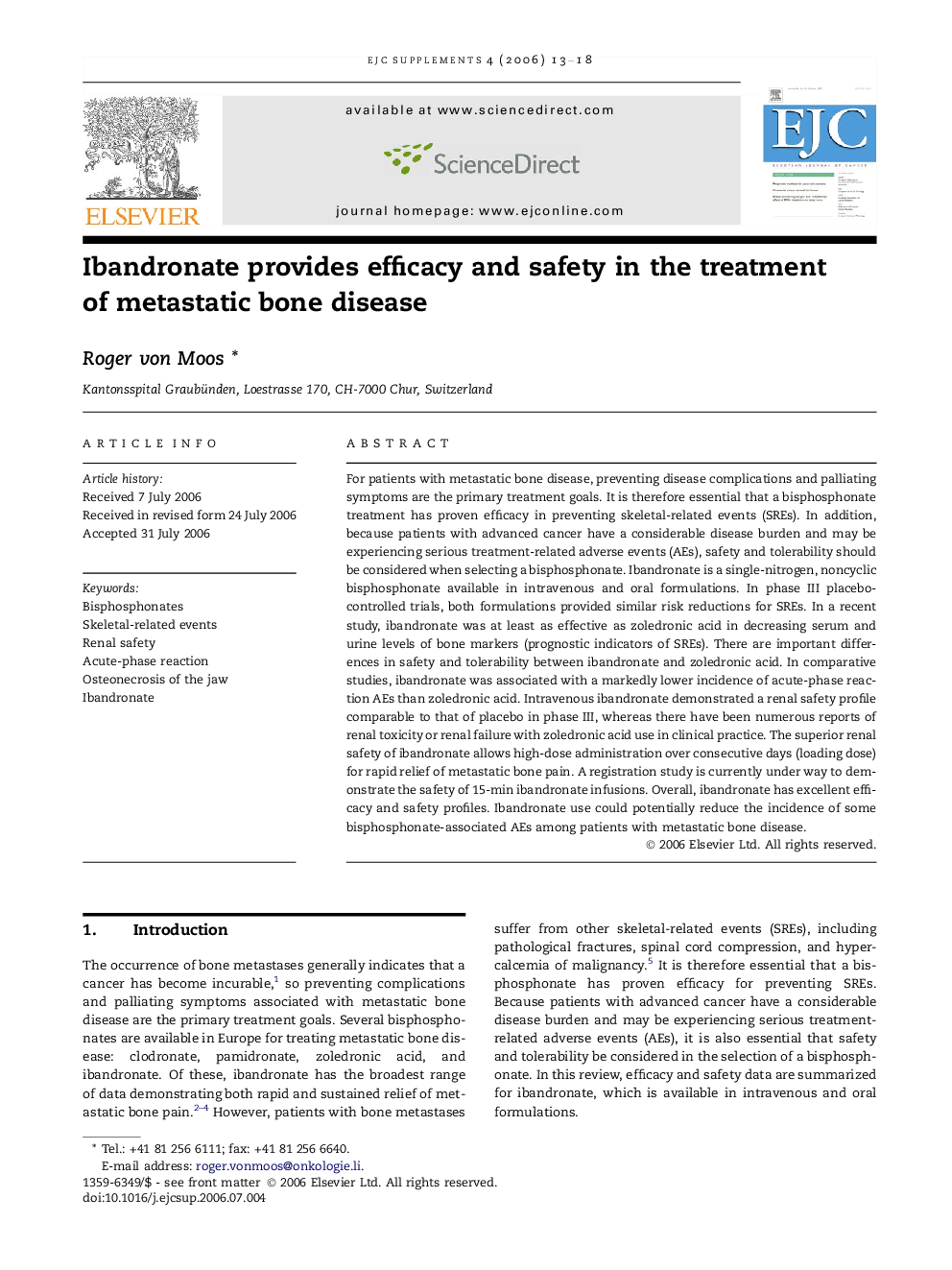| Article ID | Journal | Published Year | Pages | File Type |
|---|---|---|---|---|
| 8449492 | European Journal of Cancer Supplements | 2006 | 6 Pages |
Abstract
For patients with metastatic bone disease, preventing disease complications and palliating symptoms are the primary treatment goals. It is therefore essential that a bisphosphonate treatment has proven efficacy in preventing skeletal-related events (SREs). In addition, because patients with advanced cancer have a considerable disease burden and may be experiencing serious treatment-related adverse events (AEs), safety and tolerability should be considered when selecting a bisphosphonate. Ibandronate is a single-nitrogen, noncyclic bisphosphonate available in intravenous and oral formulations. In phase III placebo-controlled trials, both formulations provided similar risk reductions for SREs. In a recent study, ibandronate was at least as effective as zoledronic acid in decreasing serum and urine levels of bone markers (prognostic indicators of SREs). There are important differences in safety and tolerability between ibandronate and zoledronic acid. In comparative studies, ibandronate was associated with a markedly lower incidence of acute-phase reaction AEs than zoledronic acid. Intravenous ibandronate demonstrated a renal safety profile comparable to that of placebo in phase III, whereas there have been numerous reports of renal toxicity or renal failure with zoledronic acid use in clinical practice. The superior renal safety of ibandronate allows high-dose administration over consecutive days (loading dose) for rapid relief of metastatic bone pain. A registration study is currently under way to demonstrate the safety of 15-min ibandronate infusions. Overall, ibandronate has excellent efficacy and safety profiles. Ibandronate use could potentially reduce the incidence of some bisphosphonate-associated AEs among patients with metastatic bone disease.
Keywords
Related Topics
Life Sciences
Biochemistry, Genetics and Molecular Biology
Cancer Research
Authors
Roger von Moos,
